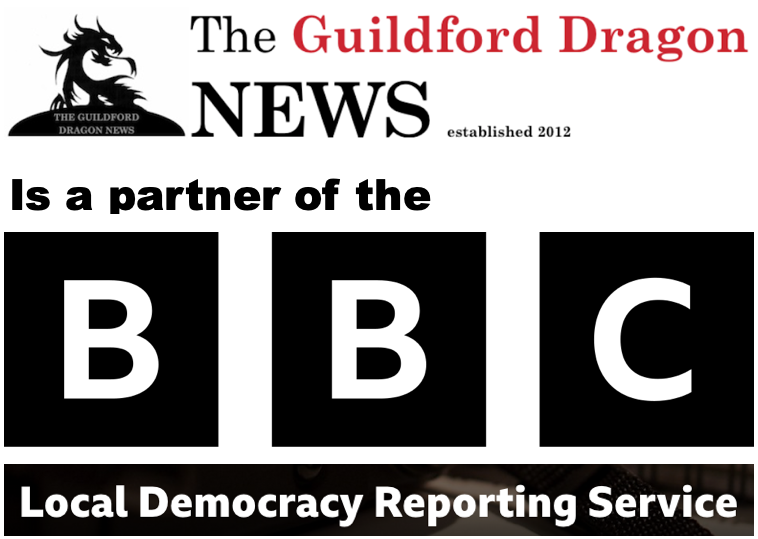 Abraham Lincoln
If given the truth, the people can be depended upon to meet any national crisis...
Abraham Lincoln
If given the truth, the people can be depended upon to meet any national crisis...
 Guildford news...
for Guildford people, brought to you by Guildford reporters - Guildford's own news service
Guildford news...
for Guildford people, brought to you by Guildford reporters - Guildford's own news service
Rubens’ Blog: Navigating Neurodiversity At Work
Published on: 10 Oct, 2022
Updated on: 10 Oct, 2022

Rubens King.
Rubens King currently works as an armed forces caseworker for young people, helping people find training, work experience, volunteering, and paid work. He also writes giving advice on mental health issues to promote equality, diversity and inclusion. Here he writes about neurodiversity.
Neurodiversity (ND) is a new term since 2000 which could be defined as a term to capture people who think differently. For example, due to mental health or a diagnosis like autism, dyslexia, attention deficit, schizophrenia and more.
The opposite, neurotypical is someone who processes information without such diagnosis’ impacting cognitive information processing function.
As someone with ND I bond better with other people with ND since there can be more understanding. However, I would argue there are countless people without a diagnosis implying the statistics are not representative of the actual figures of people with ND.

Catherine.
Catherine is someone with autism working for the Office of National Statistics who writes an engaging piece about the importance of sharing ND with an employer or ‘disclosing’ a disability.
https://www.gov.uk/government/news/neurodiversity-in-the-workplace
Naturally, navigating neurodiversity throughout all stages of the candidate-employee lifecycle can be a learning process. Learning process since people are different and considering a tailored approach to individual needs rather than standardised format is essential, especially considering rights of those with protected characteristics identified in the Equality 2010 Act. https://www.legislation.gov.uk/ukpga/2010/15/contents
Oakleaf in Guildford can provide free employment support to those with or without a diagnosis if for example, anxious about next steps and may benefit from support. https://www.oakleaf-enterprise.org/referral/
For a focus on wellbeing, I’m All Ears are very helpful.
https://www.imallears.community/home
 Applying for a job can be tricky for someone with ND. Some companies offer extra time for any online tests and offer the opportunity to ask for any adjustments which is a good start. Knowing which adjustments work best for you can be challenging. Working with an employment advisor can help with navigating these obstacles.
Applying for a job can be tricky for someone with ND. Some companies offer extra time for any online tests and offer the opportunity to ask for any adjustments which is a good start. Knowing which adjustments work best for you can be challenging. Working with an employment advisor can help with navigating these obstacles.
Mind matters is a free NHS service able to support with wellbeing. They can also signpost to the amazing Richmond Fellowship for employment advice upon request.
https://www.mindmattersnhs.co.uk/how-can-we-help-you/refer-yourself
One strategy to settle into work effectively is to ask for the induction process to be tailored. Whether this includes more breaks, more opportunities for questions or a copy of the plan, these simple measures can greatly support someone with ND during induction.
It may be helpful to apply for an access to work grant for fully funded in work support (providing you have joined in the last six weeks otherwise you may be asked to pay half the cost, which is still potentially positively life changing). https://www.gov.uk/access-to-work/apply
 Hopefully leveraging some of these options will make it easier to interact in the workplace.
Hopefully leveraging some of these options will make it easier to interact in the workplace.
Rubens King also has his own blog site, Stay Fruity.
Recent Articles
- Just Scrapping Ofwat Will Not Solve Guildford’s Pollution Problems, Says MP
- Mayor Supports Charity Day at Guildford Model Engineering Society
- Nurse Campaigns for 24hr Train Tickets
- Cathedral To Hold Special VJ Commemoration To Mark End of Second World War
- New Toucan Crossing In Operation
- Burglars Jailed After South East Crime Spree
- ‘We Need To Get This Right,’ Says Coroner at Sara Sharif Pre-inquest Review
- Letter: This Article Is a Wonderful Reminder of the Magic in Our Backyards
- Another Housing Revenue Account Overspend Revealed at GBC
- Dragon Review: A Comedy of Errors and A Company of Rascals – Yvonne Arnaud Theatre



Search in Site
Media Gallery
Dragon Interview: Local Artist Leaves Her Mark At One of England’s Most Historic Buildings
January 21, 2023 / No Comment / Read MoreDragon Interview: Lib Dem Planning Chair: ‘Current Policy Doesn’t Work for Local People’
January 19, 2023 / No Comment / Read MoreA3 Tunnel in Guildford ‘Necessary’ for New Homes, Says Guildford’s MP
January 10, 2023 / No Comment / Read More‘Madness’ for London Road Scheme to Go Ahead Against ‘Huge Opposition’, Says SCC Leader
January 6, 2023 / No Comment / Read MoreCouncillor’s Son Starts Campaign for More Consultation on North Street Plan
December 30, 2022 / No Comment / Read MoreCounty Council Climbs Down Over London Road Works – Further ‘Engagement’ Period Announced
December 14, 2022 / No Comment / Read MoreDragon Interview: GBC Reaction to the Government’s Expected Decision to Relax Housing Targets
December 7, 2022 / No Comment / Read MoreHow Can Our Town Centre Businesses Recover? Watch the Shop Front Debate
May 18, 2020 / No Comment / Read More











Recent Comments